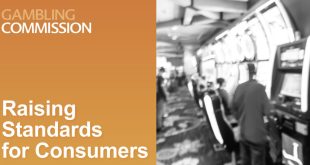Will sports betting come to the rescue for Ney York’s COVID-hit finances? Regulus Partners believes that Governor Andrew Cuomo has a tricky balancing act if he wants to boost coffers with deregulation. And why are regulators changing how they count problem gambling behaviour?
US: sports betting regulation – Cuomo takes a bite?
There has been a long history of gambling liberalisation linked to crisis and the urgent need for funds (from improving the defences of cities in Flanders in the early renaissance, which triggered the earliest modern lotteries, to the L’Aquila earthquake liberalisation of Italy in 2009).
It unsurprising therefore that the current pandemic crisis is seen by some as a potential accelerant to gambling liberalisation for tax raising purposes, especially in the emergent US sports betting and igaming sectors. Excluding politically fraught California (see WPs passim), New York would be the biggest prize of all. Therefore, when Governor Cuomo stated that sports betting “may be” one of the fiscal answers to the state’s mounting problems earlier this week, there was much excitement at the increased potential for meaningful market liberalisation.
In this strangest of festive periods, some New Testament hope might perhaps be better than a dour Old Testament lesson, but we are going for the latter anyway. The original Big Apple gave its consumers great wisdom, but also the ability to doubt, deceive and destroy. From a purely practical perspective, this is a useful lens through which to look at Cuomo’s options.
There is clearly great wisdom in regulating and taxing sports betting beyond the four struggling upstate casinos. First, New York is almost certainly the (East Coast) epicentre of US illegal sports betting: in terms of mass engagement, a concentration of VIPs, and a large part of the agent/bookie supply chain. While the scale of US illegal sportsbetting is typically over-stated (or the money-go-round is at least double-counted) on a country-wide basis, in our view, we would not be surprised if it were a c. US$300m net revenue market in NY.
Shifting this material black market activity into a regulated environment is a very good outcome for the consumer (especially but not only those vulnerable to gambling related harms), the economy (especially media and sports), and represents ‘free money’ from a tax perspective. Second, New York is seeing large sums of money cross the Hudson to the benefit of New Jersey. On a current run-rate basis we would estimate the GGR (taxable) value of this to be c. US$80m (implying that NJ has captured c. 25% of the NY illegal market, albeit it has also almost certainly grown the betting base also, the real figure could be materially lower.
New York could easily be a c. US$1bn online sportsbetting GGR market (c. US$650m real revenue) quite quickly. Taxed at 10% GGR (c. 15% revenue), this would raise US$100m. In ordinary times, a potentially challenging tax covering only 0.1% of total state spending and just 1.7% of the 2019 deficit would seem to be political folly without significant vested interest support. But US$100m pays for a lot of PPE or vaccine doses; more importantly it can fund c. US$4bn of debt: buy-now-pay-later is fine in a crisis.
Herein lies the flipside of wisdom and the dangers that Cuomo (and/or his successors) will need to navigate. The first is constitutional. To do this quickly Cuomo must back the view that taking bets settled on servers based in upstate New York is not an expansion of gambling because the bet is still struck on territory that is already licensed. Even if successful, this approach hands inordinate power of access to the struggling upstate casinos (all of whom already have deals: bet365, DraftKings, Fanduel and Rush Street), while disenfranchising tribal, racing and lottery interests.
We doubt it will be successful, however, since it fails on a basic common-sense interpretation of the law (is allowing people to bet on their mobiles rather than driving hundreds of miles an expansion of gambling?), which is how state judges are likely to see it, in our view (even if judges do not oppose the expansion of gambling in principle, to do so against the state constitution is another matter entirely). Expect rancorous debate that may drag on and colour other more considered options.
The second is fiscal. A low tax rate gets everybody excited and looks ‘pro-business’, but as soon as the black market and NJ leakage is soaked up, any additional revenue has to come from some other form of consumer spending. The state still wins in direct tax terms if money is taken from most forms of retail, leisure and hospitality, but not necessarily in overall economic terms (eg, factoring in employment).
If sportsbetting expenditure comes from high value scratch cards (c. US$680m revenue), Racino VLTs (c. US$2bn revenue), horseracing (c. US$330m revenue on a Point of Consumption basis), or tribal casinos (c. US$1.5bn revenue) then either the state or existing vested interests start losing out both fiscally and economically (the blended tax rate on existing gambling supply is 45% excluding returns to horsemen; only a ‘normalised’ c. US$200m of table games revenue is taxed on the same low basis as sportsbetting).
Product shift could therefore be increasingly expensive and acrimonious. There is another point to make in this, with an existing NY domestic state gambling market of US$7.5bn revenue (including upstate casinos and all lottery products), allowing sports betting adds c. 8-10%: this is material, but it is hardly a panacea, nor is it a big bad bogeyman – to start with.
What a mass market accessible online sportsbetting sector tends to do in overall market terms is take a disproportionate share of overall gambling growth until it gains the critical mass to ‘be the growth’ (by dominating advertising and having the benefit of sports engagement as an underpin). Other products and channels then atrophy or decline, especially where supply is saturated, innovation is weak, taxes are high and/or regulation is stifling: a combination of these competitive restriction factors is nearly always present vs. the relative freedom implied in an online sportsbetting offer, and they are certainly present in NY. The math(s) is dangerously simple.
If we assume that total gambling in New York State can grow at 3% pa, and online sports betting takes c. 80% of this growth, then the implied sportsbetting revenue growth rate on ‘semi maturity’ is still c. 20-30%, starting at c. US$200m added pa. This is why sportsbetting is medium-term attractive as a product; but it is also why social, economic and even fiscal impacts are more inter-connected and complex than discrete or simply additive.
There are two key questions for Cuomo therefore, in our view:
Would the governor like to ‘get this done’ which triggers a constitutional battle with the courts that might make the executive look irresponsible and/or builds in a potentially limiting and even dangerous imbalance of vested interests); or, try to ‘do it properly’ and risk missing any crisis benefit (politically and fiscally)?
Would the governor like to marginally accelerate overall gambling growth at lower taxes rates and potentially build in a fiscal time bomb; or try to steer a more balanced fiscal course, but so doing likely lose the support of the key people pushing sportsbetting as the answer?
The danger for the emergent sector is that what looks like the best answers for current exposed stakeholders right now could generate the worst outcomes for everyone down the line. A little bit of knowledge is indeed a very dangerous thing…
Europe: British and Spanish regulators raise prevalent concerns
Britain’s Gambling Commission entered into festive spirit this week, launching a consultation on plans to overhaul the collection of gambling and ‘problem gambling’ prevalence data. The exercise has been on the regulator’s ‘to do’ list for some time. It seems likely that it chose the week before Christmas to kick things off out of concern that licensees and others might be in need of some light entertainment during lockdown.
The Commission is seeking views on plans to replace its current hotch-potch of surveys (including the NHS Digital Health Surveys) with a new ‘gold standard’ approach, designed to be more flexible, more responsive and better suited to conditions of social distancing. The proposals appear fine as far as they go – but as with other recent consultations, critical information is missing.
Perhaps the most significant lacuna is the question of what might happen differently as a result of achieving this ‘gold standard’. Over the past two decades, a substantial amount of data has been collected from British citizens concerning their involvement with gambling. More than 70,000 people have participated in the seven sets of major household surveys (the British Gambling Prevalence Surveys and the Health Surveys); 12,000 take part each year in the Commission’s own online and telephone surveys; and a further 3,000 schoolchildren (pre-Covid) have been included in the annual Young People and Gambling Survey. Only a fraction of these substantial datasets has been published in official reports. While there is merit in having a more consistent and timely approach to producing prevalence estimates, it is not clear what critical information the regulator thinks it is missing and how this would impact policy.
The consultation also raises a number of other issues. In its concurrent consultation on interactions and affordability checks, the Commission highlights the use of Health Surveys to evaluate impact (indeed, this is about the only specific evaluation measurement identified in the affordability consultation). Its plans to scrap the gambling component of the Health Surveys would undermine the reliability of this measure (particularly given miniscule sample sizes for ‘affordability’ item endorsements). This highlights a deeper issue of trust. The Gambling Commission possesses an experienced and generally respected research and insights team; but in recent years its leadership has gained a reputation for misusing the team’s output.
Given its track record, there is a critical question of whether an organisation that seeks to act as a legislator, enforcer and lobby group can be trusted with sole responsibility for measuring prevalence.
Staying with prevalence surveys, the Spanish Ministry of Health reported this week that the rate of ‘problem gambling’ declined in 2019/20 from 2.6% to 2.2% of the adult population. The survey results are interesting in that they use a DSM-5 cut-off score of just one (out of nine) to diagnose ‘problem gambling’ – the official cut-off for gambling disorder is four out of nine and the implied threshold for the sub-clinical classification of ‘problem gambling’ is two out of nine.
This is consistent with a wider trend to set very low tests for what is considered harmful (for example, the Short Gambling Harms Screen classifies the very act of spending money as a harm). Under the Spanish approach, occasionally attempting to win back one’s money is enough to classify the respondent as a ‘problem gambler’. Notably, Britain’s Gambling Commission has also chastised consumers for low-risk behaviour, claiming that it is “wholly unacceptable” for consumers to attempt to win back losses or (in a rather Byzantine loop) that it is “unacceptable” for them to be criticised about their gambling.
The subject of how gambling and ‘problem gambling’ prevalence rates are estimated may be a rather nerdy one; but the outputs are central to policy debate. The trend towards regulators setting very low thresholds for what they consider acceptable consumer behaviour (including judgements on how much of their own money adults should be permitted to spend) ought to be a matter of grave concern.
Global: gaming – in-the-box thinking
Nintendo, PlayStation and Xbox, the companies behind the three largest gaming consoles, have published shared safety principles this week. It is a rare and welcome display of unity between companies which have, historically, been reluctant to cooperate. The ‘shared safety principles’ are split into three categories: Prevention, Partnership and Responsibility. Each outlines the companies’ commitments to safeguarding players (especially younger) through cooperation and tools available on each console/platform.
While shared commitment from three notable names is a step in the right direction, it is unlikely that much will change in the short-term. ESRB and PEGI ratings continue to be ill-enforced, or outright ignored, and policing harassment and ‘in-game’ toxicity will not be stopped through having greater information share (the problem has been of long-standing, and controlling people’s behaviour in an online environment is far from easy). Further, the platform owner (Xbox, PlayStation and Switch) is only one cog in the overall gaming mechanism; publishers and developers also hold significant power and without more wide-reaching cooperation which captures more of the production value-chain, exposure to potential harms from gaming will remain constant.
Given the global nature of gaming, regulation on a granular level is challenging – and the evermore prevalent micro-transaction monetisation model posits larger potential exposure to harm. Nintendo, Xbox and PlayStation have always had their rules and requirements published – the shared commitment will not see much change in the immediate future as people will still gloss over or simply not read them (how many adults never mind children read full T&Cs?).
The new PS5 has been sold out since launch – similar to the new Xbox, and Christmas is the most popular time for children to receive new consoles. What is therefore critical for both consumer wellbeing and staving off legislative intervention is that these commitments are the start of something meaningful rather than a PR firewall. In all probability, both motives are likely to be present currently – only one will work, in our view.
A useful next stage of collaboration would be considering all online environments where addictive and dangerous behaviour can be present: from gambling, through gaming to online shopping. With many of the underlying problems shared, combined resources and a global view could go a long way to effective mitigation. Ironically, each sector often sees its own consumer-facing differences as a form of defence; but with a nod to PR (and effective policy management), a truly broad view on online harms would go a long way to halt the public health lobby’s tried and tested approach of ‘divide and conquer’.
Article edited by SBC from ‘Winning Post’ Sunday 20 December 2020 (click on the below logo to access a full unedited version)










